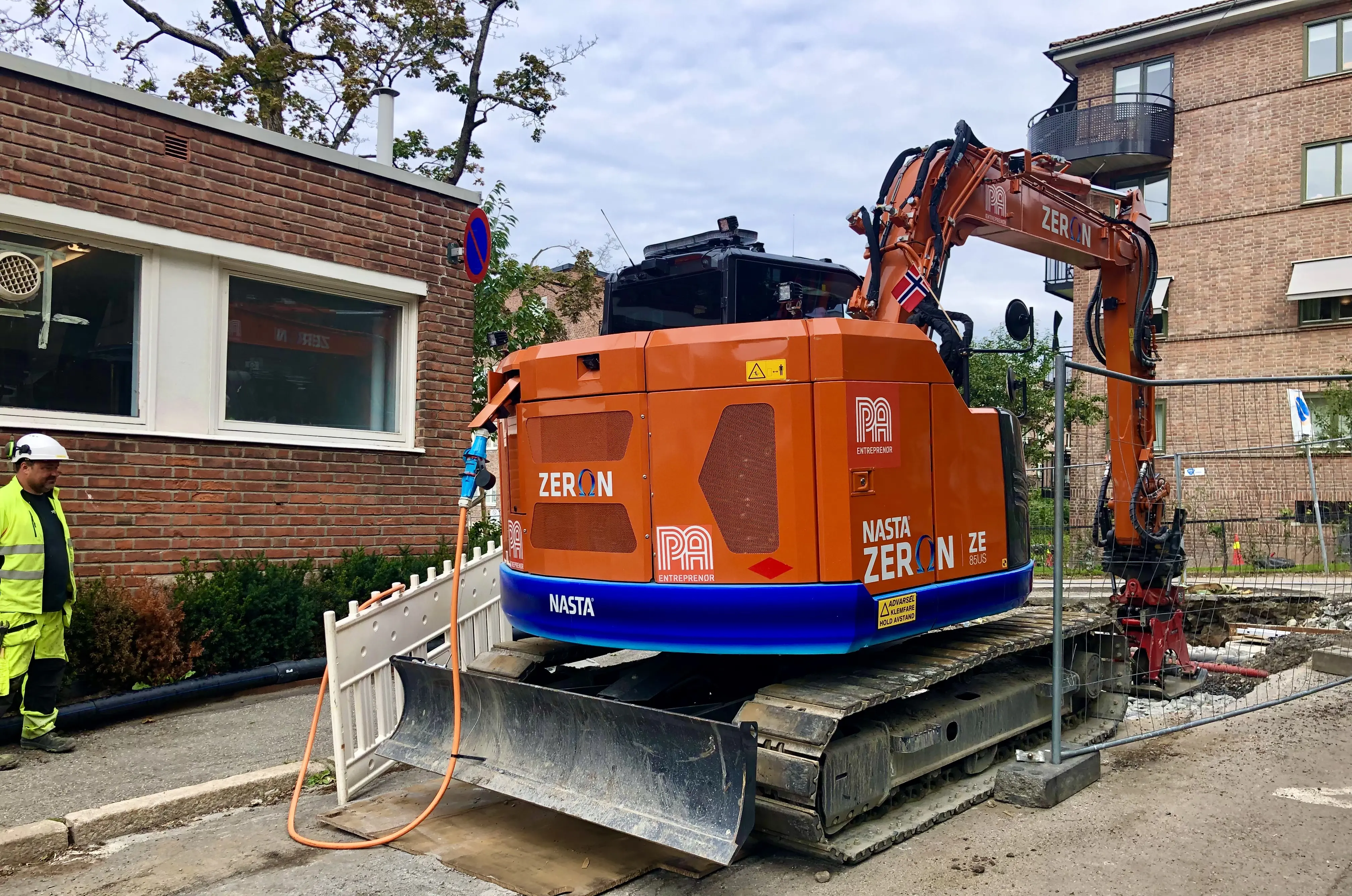
Walking down the streets of Oslo, Norway feels like walking into a low-emissions future.
Electric trams and buses zip alongside generous bike lanes and around parks designed to store carbon. But the real evidence of the city’s low carbon footprint is actually deep below ground, in a vast network of tunnels housing its power lines.
Only recently has Oslo had to move power lines underground — because of unprecedented new demands for electricity.
“We’re busy digging another tunnel for what we know is coming.”
Henrik Glette, Statnett
“We’re busy digging another tunnel for what we know is coming,” said Henrik Glette, a representative from Statnett, the state-run power company.
What’s coming is the move to electrify transportation, industry and buildings to meet Norway’s ambitious goals to be carbon neutral by 2030. Norway can afford to invest in radical climate-forward initiatives: It has the world’s largest sovereign wealth fund, valued at $1.1 trillion.
But that wealth comes with an inherent contradiction: It was built from five decades of oil extraction.
And, even as cities like Oslo become world leaders in climate-forward policies and investments, the government has refused to set an end date on oil drilling. In this week’s parliamentary election, some raised questions about whether that contradiction might be addressed — as the Green Party campaigned on a platform of stopping oil production by 2035.
Meanwhile, in cities like Oslo, the move away from fossil fuels is coming fast. Downtown, things are getting eerily quiet — including at one construction site, where battery-powered excavators and diggers move pavement with only a low, barely perceptible hum.
Sjur Helljesen, a representative at NASTA, the company that makes these construction vehicles, says government incentives can be thanked for that. In 2018, Oslo decided that all new public construction projects must be zero emissions. Helljesen says that has supercharged innovation and investment.
“Two years ago, these machines that you are seeing today, they didn't exist,” Helljesen said.
Just a few miles away along the coast, Heidi Neilson, the head of the environment at Oslo Port, describes another of Oslo’s electric fleets in operation: the ferry system.
“We have somewhere in between 70 and 100 electric ferries all along the Norwegian coast, because the government had a procurement strategy,” Nielson said.
The port has also electrified its equipment, and installed electrical “shore power” — electric hookup stations so ships can turn off their diesel engines when they’re at the port.
All across Norway, these changes are gathering momentum, making Norway one of the world’s leaders in renewable energy use. But the export market sends a very different message.
In 2020, Norway exported about 415 million barrels of oil. Burning it would emit 30 times the greenhouse gases that Norway’s population does each year. And the country is still approving new oil wells.
To many Norwegians, this contradiction is becoming untenable. It was a key issue in this week’s national parliamentary election.
“It’s definitely hypocritical. If you want to invest in renewables, you have to invest in renewables, and not invest in more oil in order to do some transition in the future. Because we don't have time for that.”
Arild Hernstad, Norway’s Green Party
“It’s definitely hypocritical,” said Arild Hernstad, the deputy leader of Norway’s Green Party. “If you want to invest in renewables, you have to invest in renewables, and not invest in more oil in order to do some transition in the future. Because we don't have time for that.”
“If everyone here lives in a zero-emissions city, and at the same time works in the oil industry and exports a lot of [carbon dioxide], that's kind of ridiculous,” Hernstad said.
But the two biggest parties in Norway don’t see it that way. Benjamin Jakobsen is a Labour politician who stressed that sustaining oil extraction is a jobs issue.
“Norway has a moral dilemma, of course, but we can't really risk 200,000 people their jobs, because that will harm the economy,” Jakobsen said. “We won't be able to reach our climate goals if people are unemployed.”
This perspective won out in Monday's nationwide election. The Labour Party claimed the majority, as expected, which means no end date on oil drilling. The Greens did worse than expected and didn’t win enough votes to get a decision-making role in parliament.
But Johannes Bergh, who studies national elections with Norway’s Institute for Social Research, says that the Greens still have momentum, despite this year’s disappointment.
“I would actually say that the political winds in Norway are blowing towards the Green Party's,” he said.
Bergh said that this year, other issues like social inequality and the pandemic took center stage. But in the long term, as younger generations make up more of the electorate, climate issues will win out.
Until then, it seems, Norwegians will keep living with the contradictions. And by 2030, they might just be a country that calls itself carbon neutral but still exports a million barrels of oil a day.






